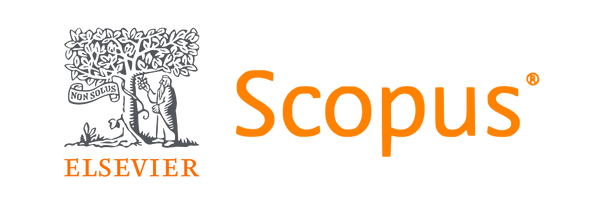POVERTY AND RELIGIOSITY: THE ‘MISSING LINK’ FROM ISLAMIC PERSPECTIVE
Abstract
Poverty is highly associated with many negative measurable aspects of life. Therefore, it is often regarded as a sign of failure. One of the arguments that prove this premise is that poverty is closer to disbelief. By rejecting doubt to preserve religion, a group that adheres to its logical religion will avoid poverty. Poverty in Kelantan shows the opposite. In a state of extreme religious adherence in terms of understanding, beliefs, and practices, more than half of the poor in Kelantan are hardcore poor. At the same time, the hardcore poor and the poor in Kelantan have the highest number in Peninsular Malaysia. This paper aims to study the relationship between poverty and religiosity in Kelantan. About 3,000 poor in ten provinces in Kelantan selected as respondents through stratified sampling. This study has demonstrated the true definition of poverty which includes the element of soul. It is clearly different from current definitions that focus more on property ownership.
Keywords
Full Text:
PDFReferences
Adnan, A. A., Endut, W. A., & Ismail, S. (2019). The contribution of Muhammad Syukri Salleh to contemporary Islamic economic thought. International Journal of Innovation, Creativity and Change, 7(9), 164–180.
Aguilar, G. R. & Sumner, A. (2020). Who are the world’s poor? A new profile of global multidimensional poverty. World Development, 126, 104716.
Ahmad, Z. (1991). Islam, poverty and income distribution. Leicester: The Islamic Foundation.
Al-Ghazali, A. H. M. bin M. (1980). Ihya’ Ulumiddin. Jakarta: Penerbit Asli.
Al-Qurahdaghi, A. M. (2013). Hakibah Talib al-Ilmi al-Iktisadiyyah: Fiqh Qadaya al-Zakah al-Mu‘asirah. Beirut: Dar al-Basyir al-Islamiyyah.
Al-Razy, A. bin F. bin Z. al-Q. (1979). Mu‘jam Maqayis al-Lugah. Beirut: Dar al-Fikr.
Beyers, J. (2014). The effect of religion on poverty. HTS Theologies Studies/Theological Studies, 70(1), 1–8.
Fadil, S. (1992). Minda Melayu Baru. Kuala Lumpur: Institut Kajian Dasar.
Gallup. (2010). Religiosity highest in the world’d poorest nations. Retrieved from gallup ritholtz.com website: http://www.gallup/poll/142727/religiosty-highest-world-poorest-nations.aspx
InsPeK, U. M. K. I. P. dan P. K. (2018). Pemetaan kemiskinan di Kelantan. Kota Bahru: Penerbit Universiti Malaysia Kelantan.
Lewis, O. (1966). The culture of poverty. Scientific American, 215, 19–25.
Lotter, H. P. (2011). Poverty, Ethics and Justice. Cardiff: University of Wales Press.
Malaysia, U. P. P. (ICU). (2017). Statistik Status Kemiskinan Nasional 2017. Retrieved from Data Goverment Malaysia website: http://www.data.gov.my/data/ms_MY/dataset/statistik-ekasih-2017
Malaysia, U. P. P. (ICU). (2018). Statistik Status Kemiskinan Nasional 2018. Retrieved from Data Goverment Malaysia website: http://www.data.gov.my/data/ms_MY/dataset/statistik-ekasih-2018
Nanak, K. (2006). In response: Poverty and wellbeing. In the human poverty index: A multidimensional measure. Poverty in Focus, International Poverty Centre UNDP, 22–23. Retrieved from http://undp-povertycentre.org
Nasikun. (2001). Isu dan Kebijakan Penanggulangan Kemiskinan. Universitas Gadjah Mada.
Rodin, D. (2015). Rekonstruksi konsep fakir dan miskin sebagai mustahik zakat. Ijtihad: Jurnal Wacana Hukum Islam Dan Kemanusiaan, 15(1), 137–158.
Salleh, M. S. (1999). Islam dan kemiskinan. Pemikir, 18, 153–174.
Salleh, M. S. (2000). Pembangunan Zaman Rasulullah saw: Antara Kemiskinan dan Kekayaaan. Pulau Pinang: Islamic Development Management Project (IDMP) Universiti Sains Malaysia dan Pejabat Mufti Pulau Pinang.
Salleh, M. S. (2004). Menangani kemiskinan secara Islam. Dlm. Mohamad Khairudin Mohamad dan Ahmad Syahir Sarani. In Pembasmian kemiskinan bandar dan luar bandar (pp. 51–105). Petaling Jaya: Institut Perkembangan Minda.
Talib, K. A. (2016). Dilema kemiskinan: Falsafah, budaya dan strategi. Akademika, 86(2), 65–78.
Wardani. (2011). Islam dan pengentasan kemiskinan. In A. Solihin & Et.al. (Eds.), Agama dan kemiskinan. Banjarmasin: Lembaga Kajian KeIslaman dan Kemasyarakatan.
Yusuf al-Qaradhawi (1994). Fiqh al-Zakah, Cairo: Maktabat Wahba.
Zaidan, A. K. (2012). Al-Jami“ fi al-Fiqhul al-Islami fi Ahkam al-Mara”ah wal Baiti al-Muslim fi al-Syari‘ah al-Islamiyyah. Damsyik: Muassasah Risalah Nashirun.
DOI: http://dx.doi.org/10.30984/jis.v18i2.1149
Article Metrics
Abstract view : 159496 timesPDF - 1599 times
Refbacks
- There are currently no refbacks.
Copyright (c) 2020 Jurnal Ilmiah Al-Syir'ah

This work is licensed under a Creative Commons Attribution-NonCommercial-ShareAlike 4.0 International License.
Rumah Jurnal IAIN Manado
Jl. Dr. S.H. Sarundajang, Kawasan Ringroad I, Malendeng Manado Kode Pos 95128, Sulawesi Utara, Indonesia.

All publication by Jurnal Ilmiah Al-Syir'ah are licensed under a Creative Commons Attribution 4.0 International licence.
Jurnal Ilmiah Al-Syir’ah, ISSN 1693-4202 (Print), ISSN 2528-0368 (Online)






